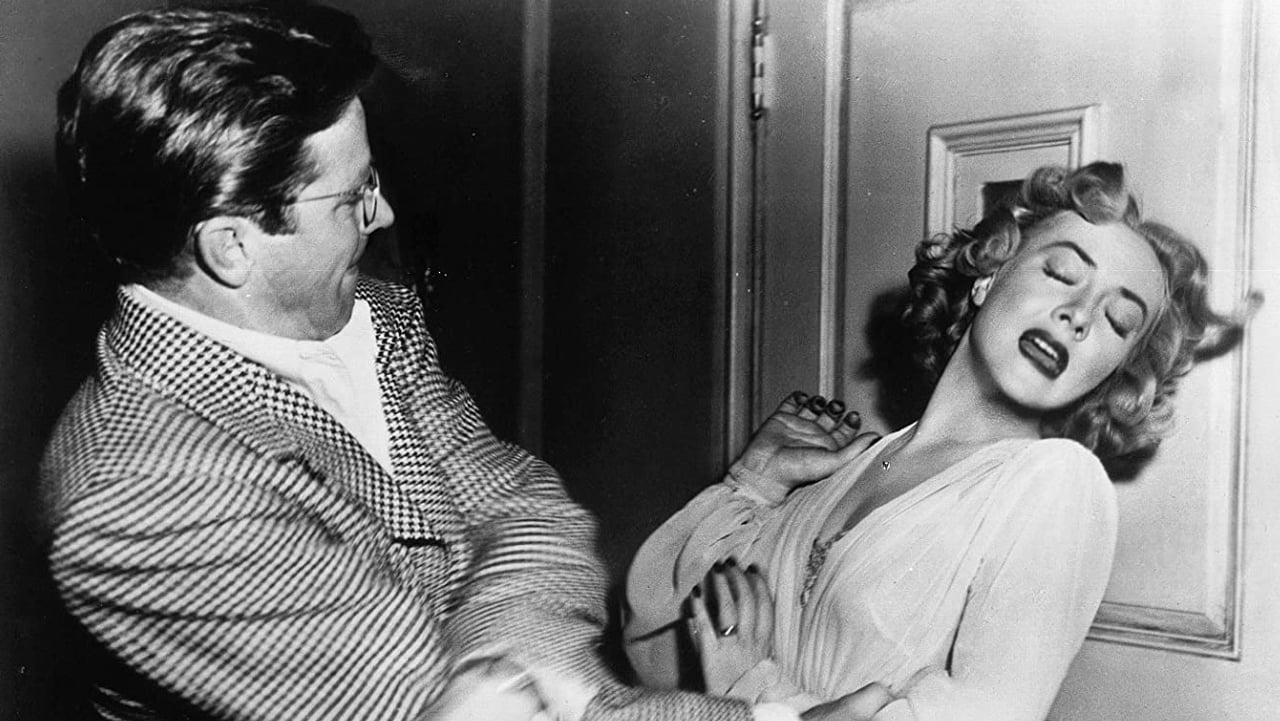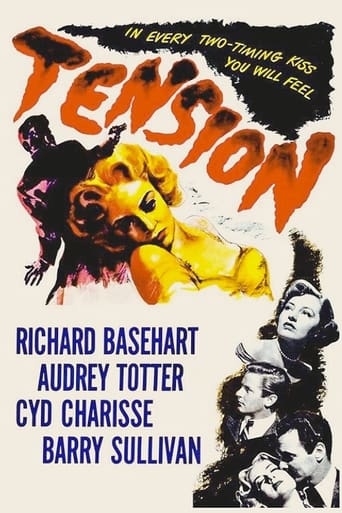



Plot so thin, it passes unnoticed.
Did you people see the same film I saw?
Although it has its amusing moments, in eneral the plot does not convince.
View MoreI think this is a new genre that they're all sort of working their way through it and haven't got all the kinks worked out yet but it's a genre that works for me.
View MoreThis represents a cross between two distinct, though often confused genres: Film Noir and the crime film. Both deal with the seedy side of urbanity in post-war America, but Noir is about criminals. Such films examine the ways that the unspoken angst of the era led "normal" citizens to do very anti-social things. The crime film, also popular at the time, was about law enforcement and the process by which it rooted out and punished transgressors. This film is ultimately more of the latter. Although he is not on screen much, the cop who delivers justice and, above all, truth is here actually the main protagonist. However, the cop character remains a voice-over narrator long enough for the film to seem like it's about characters planning a murder, and it must be said that the narrative is unpredictable and entertaining. However, this fusion of the two genres ultimately brings out the worst of both their ideological tendencies: the misogyny of Noir, with the authority-worship of the Crime Film.
View MoreRichard Basehart works the night shift at a drugstore working for his little lady trying to keep her happy. The trouble is she's Audrey Totter, and she's anything but demure and sweet. In fact, it's apparent to the viewer she's become tired of her rather timid and bland husband, flirting with men and going off with them. When she leaves him for another man, he creates another identity so that "Paul Sothern" will be the killer of the other man, and not him. But an interesting thing happens when he goes to kill him. While this is a very good and entertaining nail-biter at the time, looking back on it, it does seem to be rather unspectacular compared to others of its kind, despite the very good actors involved, such as Barry Sullivan and Cyd Charisse in support. Richard Basehart's layered performance and not knowing what Audrey will do or say next holds the film together. Watch this modest example of film noir and you'll be entertained for an hour and a half.
View MoreThis late-40s film noir has all the right ingredients: murder, a sleazy and deadly female (Totter, with a wonderful gamut of facial expressions), a female with a heart of gold (Charisse), a possibly corrupt cop (who functions as narrator), location shooting, and a wonderful jazzy score by Andre Previn with possibly THE most perfect "femme fatale" theme ever written. (When that sax starts to wail you know that your heart is about to be stomped flat.)Of course, there are lots of films with these ingredients, but what really makes this one tick is a great script. The writers manipulate your feelings about the characters, especially Quimby (Richard Basehart). Is he a sappy milquetoast? Or a killer? Or an adulterer? And what about that cop? Whose side is he on, anyway? One great twist after another leads to a very satisfying conclusion.I had never heard of this film, but it popped up on TMC and I'm glad I took the time to watch. I think it stands with the best of the genre.
View MoreTension (1949)This is such a unique surprise, it makes me think there are scores of other obscure films that are waiting to be watched. The plot, the lead actors, and the steady, crisp filming and editing prove once again that Hollywood was capable of making even ordinary seeming films excellent.The biggest surprise surely is the confidence, subtle acting by lead man (or lead men, as you'll see), Richard Basehart. His principle role is a little like Harold Lloyd from the silent days, and he is at such ease with his everyday boyish man with glasses persona you forget he's acting. But then he takes on a second role, and is dapper and super likable and the kind of guy women fall for. Basehart might actually lack a little edge, or quirkiness, to make him memorable. And he might even be good looking in too ordinary a way for a leading male.Actresses face a different audience in this way, and the second leading female, Cyd Charisse, is one of those completely ordinarily good looking leading ladies who survived just on those plain good looks, maybe like Donna Reed seemed to. (Charisse, of course, is more famous for her dancing.) The other leading female, more typecast but searingly cool and calculating, a pure femme fatale, is played by Audrey Totter, in a mold along the lines of Gloria Grahame. Totter has to play both sides of a fence, too, and does so brilliantly.Another surprise is surely Barry Sullivan, not so much for his acting, which is spot on as a detective, but for the methods this detective uses to catch his prey. We all fall for it, at least partly, and then it comes to a high pitch and dramatic end. There are surprisingly few clichés at work here. Even the setting, a fabulous pharmacy, is a fresh, and complex, and useful backdrop for the several twists as they go on. There is a beach house, and a homicide office, and noirish night scenery, but these are secondary. As much as it remains a romantic crime melodrama, it can't avoid certain useful tropes, but it's so original in other ways, I could watch it again today.
View More